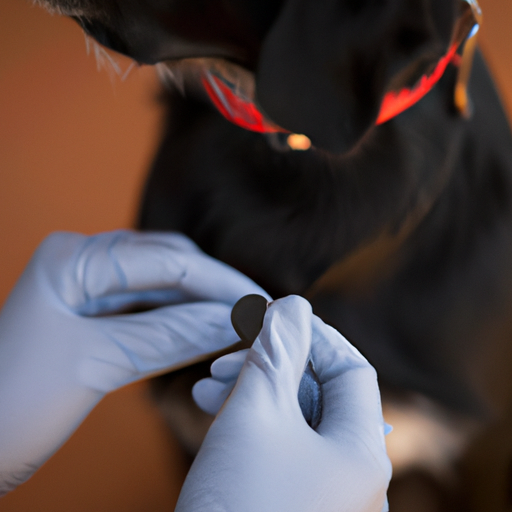As a caregiver to a beloved furry friend, it is important to know how to tackle common health issues such as ticks. Ticks can pose a serious threat to your dog’s health. This guide will take you through a step-by-step procedure on how to safely remove ticks from your dog.
H2: Understanding Ticks and the Risks they Present
Ticks are small parasites that feed on the blood of their host. They usually inhabit tall grass and shrubbery, waiting for a host (like your dog) to pass by. Once they latch onto the host, they begin feeding. Ticks can carry a range of diseases that can be transmitted to dogs, including Lyme disease and Rocky Mountain spotted fever.
H2: Spotting Ticks on your Dog
Ticks can be hard to spot due to their small size. They can be as small as a pin’s head before they feed. After a tick feeds, it can grow to the size of a small apple seed.
When checking your dog for ticks, pay special attention to:
- Ears
- Groin
- Armpits
- Feet
- Tail
If you notice a small bump or a dark spot on your dog’s skin, it may be a tick.
H2: Steps to Safely Remove Ticks from your Dog
- Gather your tools: You will need tweezers or a specialized tick removal tool, gloves, isopropyl alcohol, and a jar or container with a lid.
- Locate the tick: Part your dog’s fur and locate the tick.
- Remove the tick: Using your tool, grasp the tick as close to your dog’s skin as possible. Pull straight upward with steady, even pressure.
- Clean the area: Disinfect the bite area with the isopropyl alcohol.
- Dispose of the tick: Drop the tick into your container, then seal and dispose of it safely.
H2: Protecting your Dog from Future Tick Bites
Preventing tick bites is key to keeping your dog healthy. Here are some strategies:
- Regularly check your dog for ticks, especially after walks in wooded areas.
- Use a tick prevention product recommended by your veterinarian.
- Keep your yard clean and free of tall grass where ticks may live.
H2: FAQ
Q: Can I use tweezers to remove a tick?
A: Yes, tweezers can be used. However, be sure to grasp the tick as close to the skin as possible.
Q: Can ticks cause diseases in dogs?
A: Yes, ticks can transmit diseases such as Lyme disease and Rocky Mountain spotted fever.
Q: How often should I check my dog for ticks?
A: It is advisable to check your dog for ticks daily, especially if they spend a lot of time outdoors.
Q: Can I prevent ticks on my dog?
A: Yes, regular checkups and using preventative products can help keep your dog tick-free.
Your role as a caregiver is crucial in ensuring the health and happiness of your dog. By knowing how to effectively remove ticks and prevent them in the future, you are taking a big step in protecting your furry friend.



